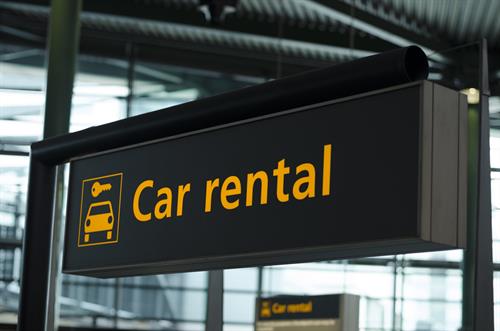
In N. v G.L, LLC., N. was allegedly injured and filed suit after his car was rear-ended by a vehicle owned by G.L. and rented through T*.com.
After the Bronx County Supreme Court denied G. L.’s motion to dismiss the case an appeal ensued. And on its review of the record, the Appellate Division, First Department, concluded that the lower court had committed an error because the company was shielded from liability under both New York’s Vehicle and Traffic Law § 388 and the Graves Amendment -- a federal law that protects rental and leasing companies from being held vicariously liable for accidents involving their vehicles, provided they are engaged in the business of renting or leasing and have not committed negligence or criminal wrongdoing.
Since G. L. was engaged in the business of renting vehicles and that there was no evidence of negligence or criminal misconduct on its part, federal immunity applied. The court also rejected N.’s argument that the motion to dismiss was premature, finding that the record was sufficient to establish G.L.’s entitlement to protection under federal law. N.’s failure to present any substantive evidence to challenge G.L.’s status as a commercial lessor further weakened his position. The court distinguished this case from Ventura v Lubman, where the defendant’s rental activity was sporadic and not clearly commercial in nature. In contrast, G.L.’s consistent and professional use of T*.com over several years demonstrated its qualification under the federal statute.
Even assuming the Graves Amendment did not apply, the court found an independent basis for dismissal: the vehicle involved in the accident had been stolen. G.L. provided documentation showing that the car was not returned on time, had its GPS tracker removed, and was reported stolen. Additional testimony revealed that the rental was obtained through fraudulent means, including the use of a forged driver’s license and stolen credit card. These facts rebutted the presumption of permissive use under Vehicle and Traffic Law § 388, thereby absolving G.L. of liability.
The court’s decision underscores the importance of clear statutory protections for vehicle rental companies and the evidentiary burden plaintiffs must meet to overcome those protections. It also highlights the evolving legal landscape surrounding peer-to-peer car rental platforms, which are increasingly integrated into traditional commercial leasing frameworks.
Notably, the decision was not unanimous. Two Justices dissented, suggesting that there may be unresolved factual issues or legal nuances that warranted further consideration. However, the majority’s reasoning reflects a firm adherence to statutory interpretation and evidentiary standards, reinforcing the principle that liability must be grounded in demonstrable fault or legal permissibility.
Federal shield, local dismissal.
# # #
DECISION
